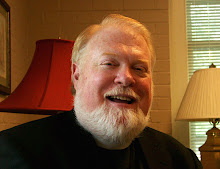A long passage from Lewis Hyde's book illustrates the contradiction of cultures in the first encounter between the first nations and the English in North America.
"When the Puritans first landed in Massachusetts, they discovered a thing so curious about the Indians’ feelings for property that they felt called upon to give it a name. In 1764, when Thomas Hutchinson wrote his history of the colony, the term was already an old saying: “An Indian gift,” he told his readers, “is a proverbial expression signifying a present for which an equivalent return is expected.” We still use this, of course, and in an even broader sense, calling that friend an Indian giver who is so uncivilized as to ask us to return a gift he has given.
Imagine a scent. An Englishman comes into an Indian lodge, and his hosts, wishing to make their guest feel welcome, as him to share a pipe of Tobacco. Craved from a soft red stone, the pipe itself is a peace offering that has traditionally circulated among the local tribes, staying in each lodge for a time but always given away again sooner or later. And so the Indians, as only polite among their people, give the pipe to theirs guest when he leaves. The English man is ticked tickled. What a nice thing to send back to the British Museum! He takes it home and sets it on the mantelpiece. A time passes and the leaders of a neighboring tribe come to visit the colonists’ home. To his surprise he finds his guests have some expectation in regard to his pipe, and his translator finally explains to him that if he wishes to show his goodwill he should offer them a smoke and give them the pipe. In consternation the Englishman invents a phrase to describe these people with such a limited sense of private property. The opposite of “Indian giver” would be something like “white man keeper” (or maybe “capitalist”), that is, a person whose instinct to remove property from circulation, to put it in a warehouse or museum (or, more to the point for capitalism, to lay it aside to be used for production).
The Indian giver (or the original one, at any rate) understood a cardinal property of the gift: whatever we have been given is supposed to be given away again, not kept. Or, if it is kept, something of similar value should move on in its stead, the way a billiard ball may stop when it sends another scurrying across the felt, its momentum transferred. You may keep your Christmas present, but it ceases to be a gift in the true sense unless you have given something else away. As it is passed long, the gift may be given back to the original donor, but this is not essential. In fact, it is better if the gift is not returned but is given instead to some new, third party. The only essential is this: the gift must always move. There are other forms of property that stand still, that mark a boundary or resist momentum, but the gift keeps moving.”
[THE GIFT: IMAGINATION AND THE EROTIC LIFE OF PROPERTY Lewis Hyde pg. 4]
The loving kindness (Hesed) of God is based on gift not commodity. This is a the core of the Book of Jonah. It appears that the flight of Jonah is based on Jonah's fear that the "Hesed/mercy" of God would be such that indeed God would forgive Nineveh.














